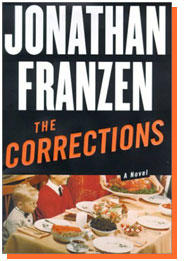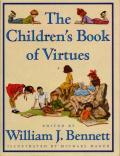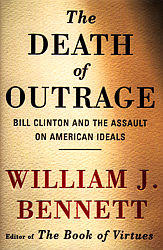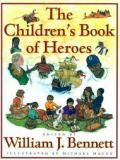
The Corrections by Jonathan Franzen.
The story is essentially a year in the life of the Lambert family: Enid, Alfred, and their grown children Gary, Chip, and Denise. The live in the Midwest, in the city of St. Jude -- that’s right, the patron saint of lost causes. The family seems normal, almost bland. Alfred was an engineer, Chip was a professor, Denise was a chef. Did you notice I said “was”? Each one has slipped the bonds of their career, some not by choice.
"Jonathan Franzen will not be on the Oprah Winfrey show because he is seemingly uncomfortable and conflicted about being chosen as a book club selection," Ms. Winfrey said in a recent statement.
"I'm a Midwesterner, and I'm eager to please," Franzen, 42, told the Chicago Tribune in a telephone interview from his New York apartment. "To find myself identified with an arrogant New York literary contingent makes me feel very misunderstood," he said.
Ms. Winfrey's choice of The Corrections for her club was announced Sept. 24 and Franzen had been expected to appear on her show in the next few weeks.
Franzen said he had considered turning down the pick, which virtually guarantees hundreds of thousands of sales. He said he was concerned about having the Oprah logo on the cover
Here’s what a reviewer wrote about The Corrections when it was selected by Oprah Winfrey’s Book Club. It seems that Jonathan has lost his chance. One may wonder why Oprah does not let her book club idea die out. Maybe she wants to show her critics that she still has the power to sell books. She can rely on her community to buy the books she recommends.
“(But note: chances have improved considerably with the 24 September 2001 selection of this title for Oprah’s book club, apparently a huge sales-booster which means the book will likely reach at least some of the audience it should. Good for Oprah ! Good for America !)
(Please note: chances have now evaporated, after Jonathan Franzen made a number of clearly ill-advised remarks about Oprah ! and her book club, leaving the public with the impression that he is an arrogant, smug "literary" type who looks down upon the (common) reader. Thin-skinned Oprah promptly uninvited and de-selected him and his book on 22 October 2001, announcing that "Jonathan Franzen will not be on The Oprah Winfrey Show because he is seemingly uncomfortable and conflicted about being chosen as an Oprah's Book Club selection" -- rather than having him on and taking him to task for (or at least exploring) his remarks and discussing the roots of the conflicts she perceives.
It is a ridiculous situation, and it has been handled badly by all involved -- with Franzen and all semi-serious literature getting the brunt of the often unfair criticism. Curiously, practically no one thinks Oprah has done anything wrong, though of course she has: the only thing that counts is the book, and the quality and the significance of book has nothing to do with its author, no matter how rude and obnoxious and arrogant he might be. Oprah can, of course, do anything she wants on her show, but she seemed to sincerely believe that The Corrections was worthy of the attention of her audience -- and she was right. Her act now seems to imply that she doesn't care about writing and reading at all, that she is only interested, like so many others, in the cult of the author. It is the personality behind the book, not the words between the covers that she apparently wanted to share with her audience (as is perhaps appropriate for a TV personality). Too bad: great literature is often written by really obnoxious, unpleasant people (who are often not particularly media-savvy). The photogenic and docile Franzen was an unlikely candidate to provoke Oprah's ire -- someone who looks the part for the publicity tour and is plugging what is actually a decent book -- but he did, with a venegeance.
Franzen may be embarrassed, but he is certainly making enough with the book (benefiting from even this relatively bad publicity). And Oprah is -- as we see by the reactions to this affair -- essentially untouchable. The real losers ? The reading public -- especially the broader public which usually wouldn't come across such a title (but which is the audience that should be reading the book), generously made aware of it by Oprah. But now Oprah has set them against it -- and tarred all serious fiction (and all books written by snobby authors) with one broad brush. Too bad for America !)”
What does it mean to be selected by Oprah Winfrey’s Book Club in terms of sales?
“Oprah's Book Club is -- make that: was -- one of the rare instances of any significant time on any popular television programme in the United States being devoted to literature in any form. Oprah's selection is also the single most anticipated event in American publishing. Being selected for Oprah's Book Club is an instant and absolute guarantee of an increase in sales in the hundreds of thousands. Any book that previously had not sold exceptionally well is instantly lifted to bestsellerdom. (In the United States, for works of fiction, no prize can claim to be anywhere near as influential in boosting sales -- sales of The Corrections barely budged after it won the supposedly prestigious National Book Award, for example. As prime movers of works of fiction the French have the Goncourt, the Brits have the Booker, the Americans have Oprah. Draw your own conclusion.)
Franzen was well aware of what it meant for his book to be chosen by Oprah.”
What other reviewers are saying:
"The best American novel published to date this year." --St. LouisPost-Dispatch
"More engaging and readable than other chilly magnum opuses in the same league . . . Unlike his Big Book peers, [Franzen] wants things tidy -- not in the middle, maybe, but at the end. The chaos-theory math wizards of antimatter fiction don't often show such good manners, such politeness, and it's touching to find it here. Not just dazzle --warmth." --GQ Magazine
"Agreeably accessible, . . . poised halfway between postmodern chic and plain old-fashioned storytelling. It sucks you into the vortex of family life, the whirling blend of happy and unhappy; it lands you in the sticky goo of mingled love and hate. What Mr. Franzen does -- brilliantly -- is to risk sentimentality to get at emotional truth." --Adam Begley, New York Observer
"[The Corrections is] Franzen's most autobiographical novel, his most engrossing (do not be surprised to find yourself trying to read it all in one sitting), and, stylistically, his most lyrical. In its gorgeous, sweeping scope and the sympathy of its tone, it owes more to Tolstoy than to Pynchon, but ultimately the novel offers up pleasures that are utterly Franzenian; a sense of exhilaration permeates The Corrections, which is, in part, the exhilaration of a writer who has broken free of his masters." --Poets and Writers
"Funny and deeply sad, large-hearted and merciless, The Corrections is a testament to the range and depth of pleasures great fiction affords." --David Foster Wallace
"Jonathan Franzen has built a powerful novel out of the swarming consciousness of a marriage, a family, a whole culture -- our culture. And he has done it with sympathy and expansiveness that bend the edgy modern temper to a generous breadth of vision." --Don DeLillo
"In its complexity, its scrutinizing and utterly unsentimental humanity, and its grasp of the subtle relationships between domestic drama and global events, The Corrections stands in the company of Mann's Buddenbrooks and DeLillo's White Noise. It is a major accomplishment." --Michael Cunningham
"Jonathan Franzen's novel The Corrections is the brightest, boldest, and most ambitious novel I've read in many years. With this dazzling work, Franzen gives notice that from now on, he is only going to hunt with the big cats." --Pat Conroy
To get more information on The Corrections, go to bookreporter.com and complete-review.com.







